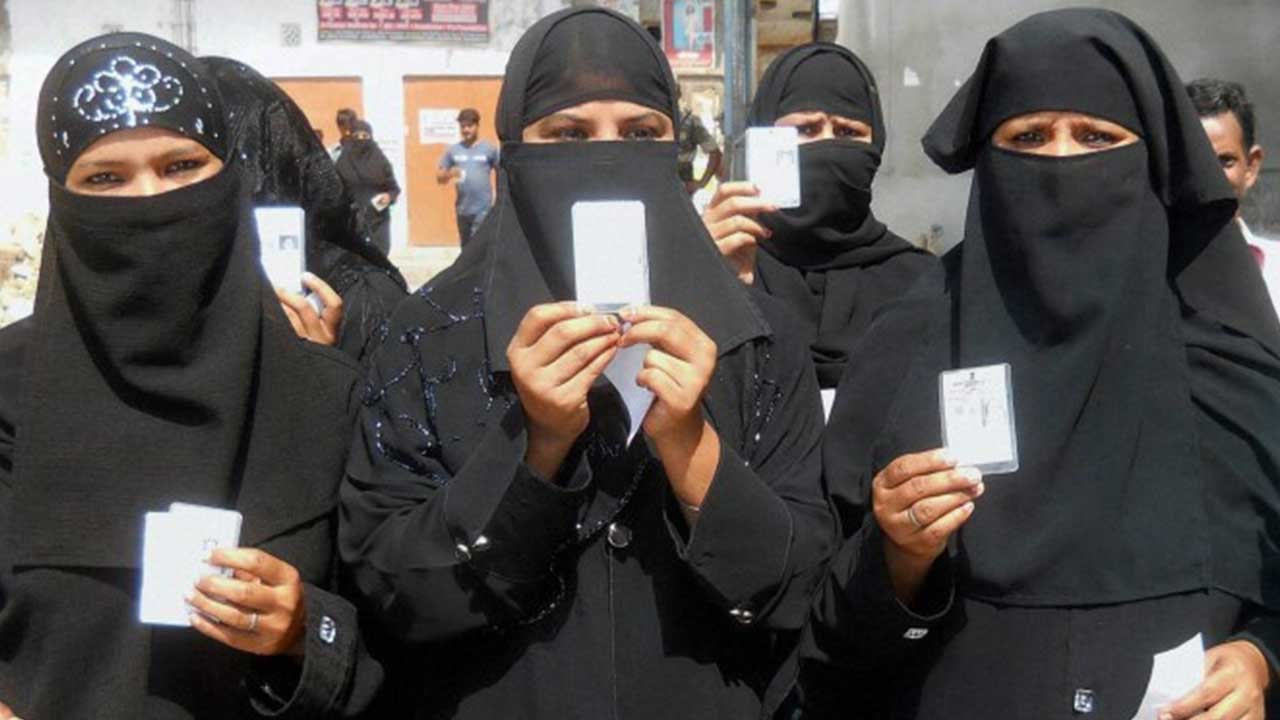Women Win Seats In Historic Saudi Vote, But...
Saudi women voters..

NEW DELHI: In a historic development, at least 13 women won municipal council seats in Saudi Arabia's first ever election open to female voters and candidates.
However, with 2,106 seats up for election, the 13 women will comprise less than one percent of Saudi Arabia's elected council membership.
Further, the obstacles faced by woman candidates reflect the deep sexism and patriarchy that characterises Saudi Arabia. Even though more than 900 women were among the 6,440 candidates standing for seats on 284 councils, these numbers have to be seen in the context of procedural restrictions placed on women candidates.
The final list of candidates was made public only on the first day of the two-week campaigning period, giving disqualified candidates no time to appeal. Many female candidates found themselves “disqualified” based on an anonymous review by a "specialised entity", also known as the Saudi Ministry of Interior. Just 979 female candidates, compared with 5,938 male candidates, managed to reach the final list. Further, female candidates could not meet face-to-face with male voters during campaigning and had to appoint a male representative.
Additionally, women accounted for less than 10 percent of registered voters as factors such as bureaucratic obstacles as well as lack of transportation hindered their participation. Women were asked for their national identity cards, when a good proportion of Saudi women utilise only family cards of their guardians as a means of identification. Another problem was proof of residence, as the majority of women customarily live with their families. They were required to obtain a validation of residence from an authorised district clerk, requiring a copy of a family card and residence documents. As an article in Al Jazeera notes, “unfortunately, district clerks were not always on duty or adequately informed to facilitate the process, so many women were excluded from participating in the elections.” Other challenges hampering participation include the availability of a guardian who agreed or was available to lend them a copy of his papers to prove residence and time constraints arising out of the fact that only a day was allocated for the public to cast their vote, and in Saudi Arabia women cannot drive or move about without a ‘male guardian.’
Other challenges included an edict issued by the mufti of Saudi Arabia against women’s participation, which was reciprocated by several religious hardliners. Incident of violence including an incident in which two masked men tore apart a banner containing the name of a female candidate reflected the socially antagonistic mood.
This social climate, which is deeply entrenched in patriarchy, dictates the severely restricted lives of Saudi women. Here’s a list of things women in Saudi Arabia can still not do:
Move about without a male guardian:
Saudi women need to be accompanied by a male guardian known as a 'mahram' whenever they leave the house. A mahram is an unmarriageable kin. In a well-known incident, a girl who alleged being gang raped was punished with whiplashes because the said crime occurred while she was alone, and not accompanied by a mahram.
Drive a car:
Saudi Arabia is the only country in the world that prohibits women from driving. The law made headlines with a Saudi cleric Sheikh Saleh al-Lohaidan announced that driving "harms women's ovaries.” "If a woman drives a car, not out of pure necessity, that could have negative physiological impacts as functional and physiological medical studies show that it automatically affects the ovaries and pushes the pelvis upwards," said Sheikh Lohaidan on the news website Sabq.org.
Wear clothes or makeup that shows off “beauty”:
The majority of women in Saudi Arabia are forced to wear an abaya and a head scarf. The face does not necessarily need to be covered, "much to the chagrin of some hardliners," as noted by the Economist. However, that doesn’t stop the Saudi Commission for the Promotion of Virtue and Vice and more commonly as the mutaween from routinely harassing women.
Compete freely in sports:
Earlier this year, Saudi Arabia proposed hosting an Olympic Games without women. Seperately, when Saudi Arabia sent its female athletes to the London Olympic games for the first time, hardliners denounced the women as "prostitutes." The female athletes had to be accompanied by a male guardian.



